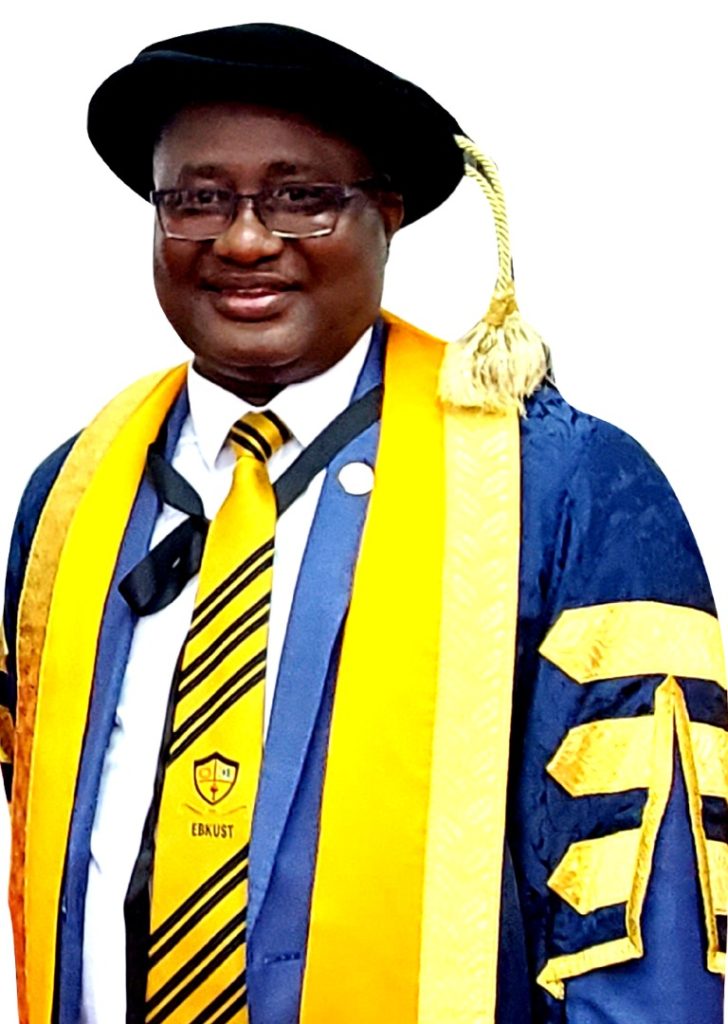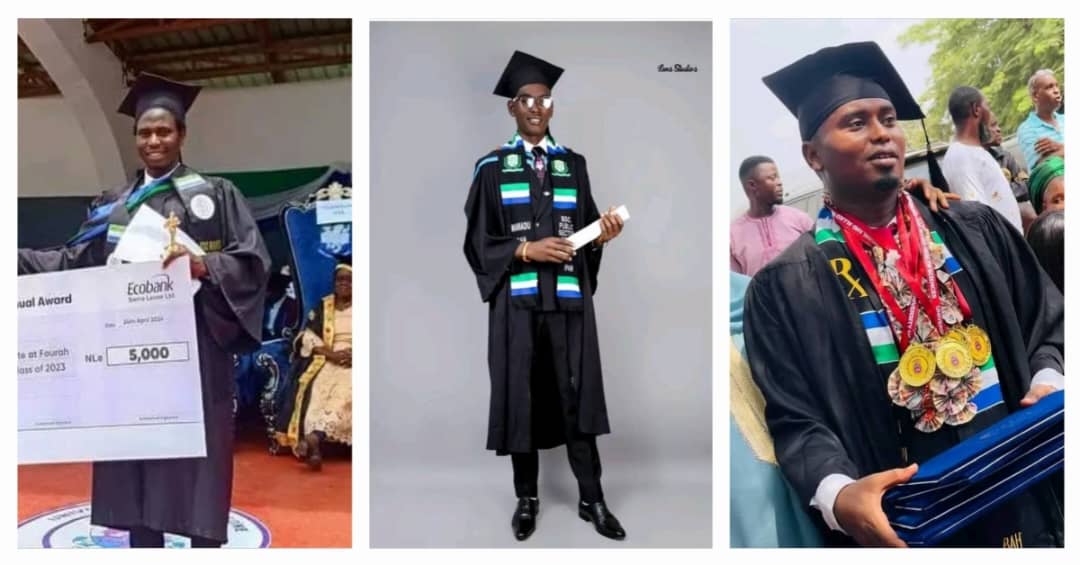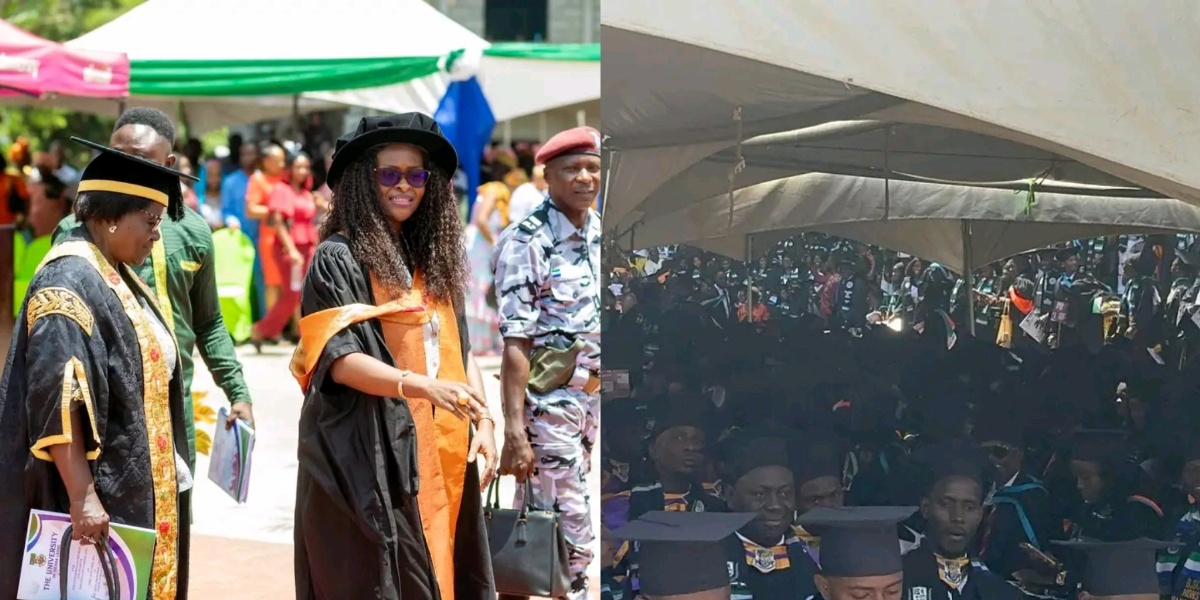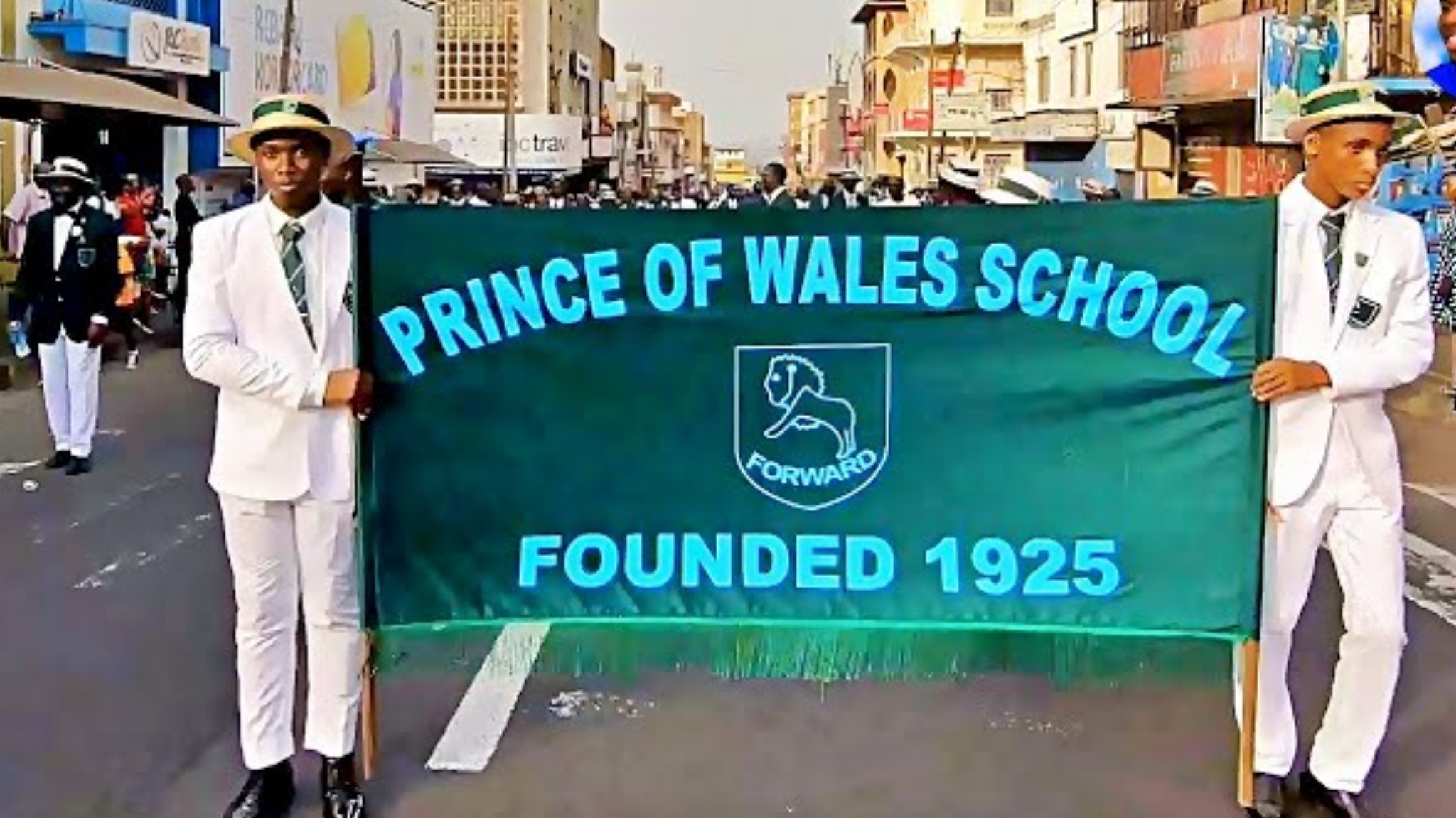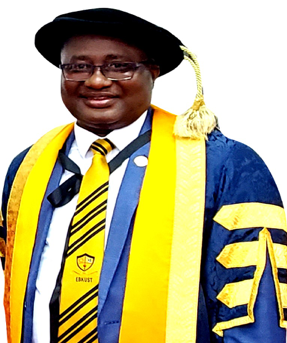
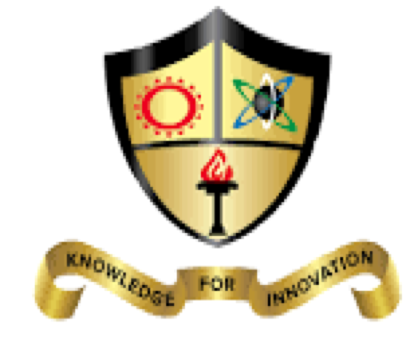
Rev. Prof. Edwin J. J. Momoh
PhD Crop Sc., MSc. Agron, BSc. Ag. Ed., CPSE., MISAB.
Vice-Chancellor and Principal 2019/2020 Congregation for the Conferment of Degrees and Award of Diplomas and Certificates
24th, April 2021
Theme: Public-Private Partnership in Higher Education Provision in Sierra Leone: Implications for Quality Education
- Your Excellency, The President of the Republic of Sierra Leone and Chancellor of the Ernest Bai Koroma University of Science and Technology;
- The Honorable Vice President of the Republic of Sierra Leone;
- The Hon. Minister of Technical and Higher Education
- The Pro-Chancellor and Chairman, and Members of the University Court and Pro-Chancellors of Siser Institutions;
- Other Ministers and Deputy Ministers of Government;
- Honourable Members of Parliament here present;
- The Chairman and members of The Tertiary Education Commission;
- Members of the Conference of Vice-Chancellors and Principals of Sierra Leone
- Your Excellencies, Members of the Diplomatic and Consular Corp;
- The Acting Deputy Vice-Chancellors of the Makeni and Port Loko Campuses of EBKUST and Deputy Vice-Chancellors of Sister Institutions;
- The University Registrar and Registrars of sister institutions;
- Chief Executives and Representatives of other Departments, Agencies and Directorates;
- Your Lordship the Mayors of the Cities of Makeni and Port Loko;
- Host Chairperson of the District Council and other Chairpersons, and Representatives of Local Government Authorities;
- Esteemed Host Paramount Chief, Traditional Leaders and Religious Clerics;
- Partners of the University;
- Faculty and Staff, and Continuing Students;
- Our Honoured Guests
- Members of the Fourth Estate;
- Distinguished Ladies and Gentlemen;
And most importantly, our soon to be Alumni of EBKUST, the Graduands.
We are gathered at a place of history for a history-making event; one of its kind in the history of Bakeh Loko, the current city of Port Loko. A few metres to the other side of this campus is the Yainkain Pepeh Amphitheatre, which in 1961 hosted Her Majesty the Queen of England and her husband the Duke of Edinburgh. This campus of the University was first established for Women to be trained as teachers, and her products have been women teachers that took teaching as a vocation rather than a profession.
This is also home and home district to past and present notable personalities of this country. Do I need to mention that Gbinti, home of our Honorable Minister of Technical and Higher Education, Prof. Alpha T. Wurie is a stone-throw from here; or perhaps a mention of Kalangba and Tentefore might ring a bell for you? If not, it is the home of the Honorable Vice President, Dr. Mohamed Juldeh Jalloh. How would I forget to mention the Apprentice, Hon. Alpha Khan whose house you can see from here? Ambassador Bond Wurie and the many more examples that I will save for another day.
Let me join the Pro-Chancellor and Chairman of the University Court in welcoming you all to the second graduation ceremony of the University since its establishment as the third State-Owned University by the 2014 amendment of the Universities Act of 2005.
This event has the permission of the Chancellor of the University, His Excellency the President, Rtd. Brig. Dr. Juius Maada Bio, to whom we do register our sincerest thanks and appreciation for his passion for promoting quality education for the citizens of this country.
Today is a very special day for all of us who are gathered here, and for those family members and well-wishers of the graduating students joining us remotely via Facebook Live or television.
Every beginning has an end, and every end has a new beginning. We should feel happy, though, that we could gather here in good health, as millions of people around the world are still held hostage by this vicious virus that has for over one year changed our normal ways of doing things into a new normal. Amid all of its associated effects, we have all made it to this day. Congratulations!
Hon. Minister of Technical and Higher Education, Pro-Chancellor and Chairman of Court, distinguished members of this house of congregation, today’s event is a major highlight of the educational activities undertaken by the graduands here present; it provides an opportunity to honour and celebrate them as deserving students. Therefore, let me seize this moment to warmly congratulate you, our graduands on your accomplishment. You might be the first in your family to receive a University degree today. Per Adua Ad Astra (From difficulties to the Stars); you have made it through great struggles, and with your resilience, you stood the test of time. Congratulations!
As we celebrate, mark you also that your journey was not made in solitude. The support of parents, guardians and all other benefactors we must celebrate too. To their honour, I will ask all graduands to kindly rise and give them a resounding round of applause.
Graduands, before you take your seats, remember this very well, that your success would not have been possible without your lecturers, tutors, cleaners and janitorial staff, who selflessly supported and encouraged you through your journey. Kindly join me in applauding.
Hon. Minister, distinguished ladies and gentlemen, when I took over as Vice-Chancellor in June of 2018, I was very excited to visit Port Loko for the first time in that capacity. My expectations were high given the long history of the city in terms of women’s education in Sierra Leone. This quickly turned into an illusion. The level of disappointment rose even higher when in a jest the paramount chief told me it was going to be an uphill task in changing the mindset of a lacklustre generation of young people from students of masquerades to University students. The greatest truths are often said in jests. I quickly found this to be true. Sadly, this campus has been mostly populated, though sparsely by students from other parts of the country. We all do have an uphill task in the transformation of our young folks into a productive and progressive generation, or we shall all be culpable of the negligence of our moral responsibility to them and the nation. This is one compelling reason for hosting this year’s graduation ceremony here at Port Loko.
Likewise, in making Port Loko a little more academically active, we have centralized in addition to two small and less populated faculties of Media and Cultural Studies, the biggest faculty of Education at this campus. This perhaps will set a stage for a turn-around of our young people into accepting the value of education.
Hon. Minister sir, this year’s ceremony will witness more persons graduating at the certificate and diploma levels for reason that we are still transitioning from the polytechnic status to full university status both in content and product. Though seemingly controversial, there is profound truth in the statement that “Most jobs that now require a college degree don’t require a college education. The requirements of such jobs are easily met by trade schools or a year or two of technical-college courses. For many employers, a degree merely certifies that the person had four years to ‘mature,’ during which time he or she had to meet arbitrary standards, do unappealing and boring work, submit to authority without complaint, and not give up. That moulds the sort of worker that business and industry like”. This is why starting with the 2021/22 academic session in October this year, the Ernest Bai Koroma University of Science and Technology shall begin the phasing out of ALL Teacher’s Certificates and Higher Teacher’s Certificate in the primary category, leaving these to the Polytechnics and Technical Universities. It is time to focus on more relevant and demand-driven undergraduate and postgraduate programmes in science and technology.
Hon. Minister sir and members of this house of congregation, we recognize the radically unorthodox nature of our decision. We are aware that one of the major sources of funding by way of students fees will be greatly affected with concomitant effect, in the short run on some of our major operations and development strides. This is why we believe in exploring other viable sources of funding.
Let me invite you, members of this house of congregation to take a quick flip through the pages of the congregation booklet. You find to your amazement a good number of advertisements. Foresightedly, this could be taken as making money from these business and corporate houses. Though not far from the truth, it is not entirely true. We have done this unsolicitedly as a means of invitation to these corporate bodies to commune with us. We have therefore chosen for this year’s theme, “Public-Private Partnership in Higher Education Provision in Sierra Leone: Implications for Quality Education”.
Though not a panacea to the several problems of education provision and financing, public-private partnerships in education can help make significant progress in delivering on the relevance of programmes and the quality of products. We must be very lucky and thankful to the government of His Excellency President Bio, who unlike many countries having budget cuts on Education, has increased budgetary allocation to basic education. Paradoxically, this generosity poses serious challenges especially relating to the quality of education provided and the capacity to absorb increasing demand for higher education. This is where we think public-private partnership in the provision of education can help solve many of the challenges that the public mode of education provision face.
Ideally, Hon. Minister sir and members of this congregation, PPPs are touted for complementing government efforts and assisting developing countries to meet their international agreements commitments, improve learning outcomes, provide alternative education financing options, etc. (Patrinos et al. 2009). Research has shown other benefits associated with PPPs in education including, but not limited to taking advantage of specialised skills in the private sector; overcoming operating restrictions; permitting economies of scale; allowing governments to respond to new demands and facilitate the adoption of innovations in service delivery; allowing governments to focus on those functions for which they are comparatively advantaged; increasing transparency of government spending; overcoming constraints on public budgets, and mobilising resources in the absence of effective systems for collecting revenue (Education International 2009).
It is against this backdrop that we invite our corporate friends to journey with us in making quality education a priority in Sierra Leone.
Today’s occasion is marked by the graduation of a total of 1,823 candidates, 175 undergraduates from the two faculties of Education and Basic and Health Sciences; 15 State Registered Nurses; 749 Higher Teachers’ Certificate Secondary; 238 HTC Primary, 592 Teachers’ Certificate and other diplomas.
Amid the challenges of the COVID-19 pandemic, Hon. Minister and members of this house of congregation, it is gratifying to note that tremendous progress was made ranging from general administration to strengthening of relationships with other organizations and agencies.
I will attempt to share with you some of these achievements within the six-point strategic pillars of our rolling strategic plan.
- Widening Access and Participation –
One of the challenges, as we poise toward digitalization of our courses and Widening Access and Participation, had been with the physically challenged students, especially the visually impaired. Whilst we were struggling with this idea, a gentleman who walked into my office to discuss issues of sponsorship for students had the answer in his hands. Mr Keneth Pambu of the Church of Jesus Christ of Latter Days Saint asked us to put a concept for a grant together with a small budget with the overall goal of creating a supportive and congenial learning environment that will lead to increased inclusion and enhance retention of physically challenged students to complete a full cycle of academic programmes. This culminated in the provision of 16 new laptops fitted with NonVisual Desktop Access software (NVDA), a very popular screen reader developed to enable the blind and the vision-impaired to use computers with ease. Today, two of the visually impaired recipients are among these graduating.
Hon. Minister, Pro-Chancellor, ladies and gentlemen, the German Philosopher Friedrich Nietzsche once said “That which does not kill us, makes us stronger.” Making our notes electronically accessible to our students was once regarded as an impossibility. Thanks to the restrictions on public gathering brought upon us by the COVID-19 pandemic. The adoption of students and learning management systems once dreaded have made us stronger.
In response to our community service, we have awarded community scholarships to vulnerable students with proven potential to graduate and be of help to their society.
- Provision of relevant and high-quality academic programmes
Distinguished members of this house of congregation, I must register my sincere thanks and appreciation to my colleague academic staff for putting in the extra period of work in reviewing all existing curricula and developing new ones that went through the due process of review and approval by the Tertiary Education Commission. I am proud to report that in addition to the five existing undergraduate programmes, eight more received approval from the Tertiary Education Commission. Among these, the first institution in Sierra Leone to offer courses leading to the award of the Bachelor of Art in Islamic Studies.
We have also had approvals to offer postgraduate-level programmes in Corporate Governance with specializations in governance and leadership, auditing and taxation, financial services and insurance trust, global management, human resource and corporate governance code. With the commercialization of agriculture in Sierra Leone, we are the first to offer a Master of Business Administration in Agri-Business Management.
With a 3 billion leones grant from the Skills Development Fund, we are training 530 young people for hands-on services in trades including engineering, plumbing, sewing etc.
I truly owe this to the hard work of my colleagues. I cannot thank you enough.
- Intensifying performance in research and innovation
Hon. Minister sir, this is the thrust of our mission, research and innovation. In February 2019, the University launched an endowment fund for research with an initial sum of One Hundred Million Leones (Le100,000,000). This account is up and running with the Rokel Commercial Bank to which we invite all members of the public and our corporate partners to be a part of this worthy venture.
My colleagues and I have been engaged in individual research and publication. More than 10 papers were published during the year under review. This is however individualistic. With the new and demand-driven postgraduate programmes, we are poised to engage in corporate research that would inform policy at the governance level.
To guarantee originality in research publication, all papers and graduate-level publications would be subjected to the “Turn it in” plagiarism check handled by the Dean of postgraduate studies.
- Strengthening capacity for excellence in delivery
Staff development at EBKUST is designed to assist staff in meeting new demands of Higher Education in a time of knowledge extension, information sharing and open system thinking. We continue to increase our level of support to staff members who opt for higher degrees in the much-needed competencies. One male and three female staff member are now taking programmes leading to the PhD degrees at Njala University and the University of Sierra Leone.
To ensure proper supervision and quality assurance, we have centralized the operations of faculties to specific campuses, with the Makeni campus hosting the three faculties of Social and Management Sciences; Basic and Health Sciences and Agriculture and Natural Resources Management. The Port Loko campus holds the faculties of Education and Media and Cultural Studies, whilst the Magburaka campus hosts the faculties of Technology and Engineering, Interfaith Studies and the School of Postgraduate Studies.
We shall continue our drive on training and best practice dissemination strategies aimed at empowering faculty and researchers to innovate, staff to use IT systems effectively, and students to improve their digital literacy for discovering, evaluating, and creating information using digital technologies.
- Ensuring institutional efficiency and effectiveness
Hon. Minister Sir, this has been made easier with the right support base from the representation of the Chancellor and line ministry, which we have enjoyed over the tenure of the University Court under the leadership of Dr. Briama Kargbo. With support from the Court, we have approved 17 policies ranging from conditions of service to codes of conduct for staff and students. These could be found on the University Website for all members of the University. We instituted and completed an annual appraisal of all staff members.
From own-sourced revenue, a two-storey building once underutilized has been fully rehabilitated into a faculty building to house the three faculties at the Makeni campus. The rehabilitation of the administrative buildings and students’ hostels are underway on all three campuses.
- Strengthening engagement and global impact
Hon. Minister, members of this house of congregation, our partnership and collaborative programs with International Universities in Canada, Guinea, Liberia, Nigeria, Ghana, Gambia, Rwanda and Ivory Coast remain very active and functional. But for the advent of the COVID-19 pandemic, our partnership with the University of Verona in Italy could have witnessed the establishment of a hospital on the Makeni campus. This project is still actively considered.
Locally, our working relationship with all higher education institutions remains very congenial.
Challenges
Hon. Minister sir, Mr. Pro-Chancellor, distinguished members of this house of congregation, the common challenges faced by higher education institutions cannot be overemphasized. We do share mutual woes and mutual burdens. Burdens of liabilities owed to suppliers, statutory bodies and retired colleagues; burdens of staff resentments, students’ unrest, the list is endless. However, Hon. Minister sir, we are encouraged by His Excellency’s commitment, and by extension the ministries of Technical and Higher Education and Finance in resolving all of these. We are especially thankful to His Excellency, the President and Chancellor of the public universities for his intervention that has brought about the receipt of most of the Government’s commitment to these institutions. Our retired colleagues shall continue receiving their ex gratia entitlements starting next week. We also are encouraged and strengthened by our collective energies as members of the Conference of Vice-Chancellors and Principal; the strongest partnership that could ever be forged.
To the Graduands
Education doesn’t stop after you graduate from college. It doesn’t stop after you finish your MBA or PhD either. As you graduate, and as you deal with the excitement and anxiety of the day, I encourage you to work hard to create the kind of world you wish to live in. “You’re not going to get very far in life based on what you already know. You’re going to advance in life by what you’re going to learn after you leave here.” Never allow yourself to get discouraged and think that your life is insignificant and you cannot make a change. Don’t be afraid or ashamed to make mistakes, you will be able to correct any mistakes you might make.
To Parents and Benefactors
To you the parents and guardians of the graduands, I know you have all been waiting for this moment, but please permit them some time. Don’t be too quick in expecting your reward from them. Be patient and continue to support them until they are gainfully employed.
To Our Corporate Partners
This is my call to all and sundry, we invite you as individuals and corporate organizations to join us in building these young folks for the future. Together with you, the stakes are ours in the provision of quality education at the tertiary level. With you, we can together help make significant progress in delivering on the relevance of our programmes and the quality of our products. Be reminded of the famous saying of the Chinese Philosopher, Lao Zu, otherwise known as Confucius “If your plan is for one year, plant rice. If your plan is for ten years, plant trees. If your plan is for one hundred years, educate children
AWARD OF HONOURS
Hon. Minister sir, at EBKUST, we punish wrongdoing and honour good work. To this end, upon an annual appraisal, the following colleagues obtained a near-perfect score in their commitment to productivity. Please permit me to publicly recognize their good work with this small token of appreciation.
- Mr. Fawullay Y. Marrah
- Mrs. Florence Boston-Griffiths
Conclusion
Remember these nuggets for successful living:
“Success is not final; failure is not fatal: It is the courage to continue that counts.” …
“It is better to fail in originality than to succeed in imitation.”
Thank You, and God Bless You!
